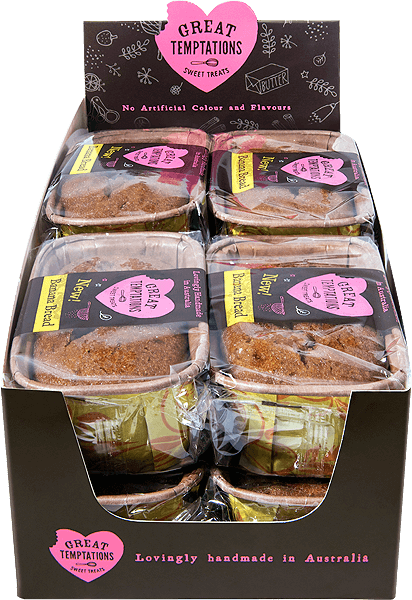
Raising children on a gluten-free diet presents unique challenges but with the right guidance and approach, it can be navigated smoothly. Whether your child has celiac disease, gluten sensitivity, or you've chosen a gluten-free lifestyle for your family, ensuring they receive proper nutrition and enjoy a varied diet is paramount. Here's a comprehensive guide to help you raise gluten-free kids successfully.
Understand Gluten and Its Sources
Begin by educating yourself about gluten and where it's commonly found. Gluten is a protein present in wheat, barley, rye, and their derivatives. It's essential to learn how to read food labels carefully to identify gluten-containing ingredients. Additionally, be aware that gluten can hide in unexpected places such as sauces, marinades, and processed foods. By understanding where gluten hides, you can make informed choices and better protect your child from accidental exposure.
Create a Gluten-Free Environment at Home
Make your home a safe haven for your gluten-free child by removing all gluten-containing products from your kitchen. Stock up on gluten-free alternatives for staples like bread, pasta, and snacks. Designate separate cooking utensils, cutting boards, and toaster if possible to prevent cross-contamination. By creating a safe environment at home, you can minimise the risk of your child coming into contact with gluten. If you’re short on time, don’t forget to check out our latest gluten-free range here.
Involve Your Child in Meal Planning
Engage your child in meal planning and preparation to foster their independence and confidence in managing their gluten-free diet. Let them help choose recipes, select ingredients at the grocery store, and assist in cooking meals. This not only teaches valuable life skills but also empowers your child to take ownership of their dietary needs.
Lead by Example
Embrace the gluten-free lifestyle alongside your child. Children learn by example, so make gluten-free eating a family affair. Cook and enjoy gluten-free meals together, explore new recipes, and involve your child in meal planning and grocery shopping. By showing enthusiasm for gluten-free living, you'll empower your child to embrace their dietary needs with confidence.
Advocate for Your Child
Whether it's at school, social gatherings, or restaurants, advocating for your child's dietary needs is essential. Communicate clearly with teachers, caregivers, and other parents about your child's gluten-free diet. Provide resources and suggestions for safe alternatives when necessary. When dining out, don't hesitate to ask questions about ingredients and preparation methods to ensure that your child's meal is gluten-free.
To help save you time, here are some helpful resources around planning social events that are gluten-free:
- Gluten Free Lunch Box Ideas that Kids and Adults Will Love
- 10 Tips for Throwing a 100% Gluten-Free Child’s Birthday Party
- Gluten Free Party Recipes and Dishes
Teach Self-Advocacy
As your child grows older, teach them how to advocate for themselves and confidently communicate their dietary needs to others. Equip them with the knowledge to read food labels, ask questions about ingredients, and make informed choices. Encourage them to speak up if they have concerns about food safety or cross-contamination, whether at school, social events, or restaurants.
Focus on Whole, Nutrient-Dense Foods
Emphasise whole, naturally gluten-free foods in your child's diet, such as fruits, vegetables, lean proteins, nuts, and seeds. These nutrient-dense foods not only provide essential vitamins and minerals but also help to ensure a well-rounded and balanced diet. Get creative with meal preparation by experimenting with gluten-free grains like quinoa, rice, and buckwheat, and incorporate them into your child's favourite dishes. Encourage them to explore new flavours and cuisines to expand their palate.
Be Patient and Flexible
Raising gluten-free kids requires patience, flexibility, and understanding. There may be challenges along the way, but with patience and perseverance, you can overcome them. Be open to trying new recipes, products, and approaches to accommodate your child's dietary needs. Celebrate their successes and progress, no matter how small, and provide support and reassurance during difficult times.
Foster a Positive Relationship with Food
Above all, instil a positive attitude towards food and eating in your child. Emphasise the delicious and nutritious gluten-free options available to them rather than focusing on what they can't have. Encourage them to explore new flavours and cuisines, and celebrate their successes in navigating the gluten-free lifestyle. By fostering a healthy relationship with food, you'll help your child develop confidence, resilience, and a lifelong appreciation for mindful eating.
Raising gluten-free kids requires patience, diligence, and a supportive environment. By educating yourself, creating a safe space, leading by example, advocating for your child, teaching self-advocacy, focusing on whole foods, and fostering a positive relationship with food, you can empower your child to thrive on a gluten-free diet. With support and delicious gluten-free meals, you can ensure that your child's dietary needs are met while promoting their overall health and well-being.
Need more inspiration or tips for raising Gluten-Free kids?
Check out our other blogs sharing tips, hacks and recipes below!
10 Tips For Throwing a 100% Gluten-Free Child’s Birthday Party
Gluten-Free Lunch Box Ideas that Kids and Adults Will Love
Back to School - Lunch Boxes Made Easy

